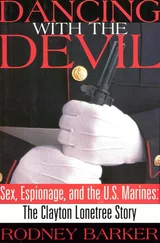Heywood Broun - The A. E. F. - With General Pershing and the American Forces
Здесь есть возможность читать онлайн «Heywood Broun - The A. E. F. - With General Pershing and the American Forces» — ознакомительный отрывок электронной книги совершенно бесплатно, а после прочтения отрывка купить полную версию. В некоторых случаях можно слушать аудио, скачать через торрент в формате fb2 и присутствует краткое содержание. ISBN: , Жанр: foreign_antique, foreign_prose, foreign_language, на английском языке. Описание произведения, (предисловие) а так же отзывы посетителей доступны на портале библиотеки ЛибКат.
- Название:The A. E. F.: With General Pershing and the American Forces
- Автор:
- Жанр:
- Год:неизвестен
- ISBN:http://www.gutenberg.org/ebooks/39072
- Рейтинг книги:4 / 5. Голосов: 1
-
Избранное:Добавить в избранное
- Отзывы:
-
Ваша оценка:
- 80
- 1
- 2
- 3
- 4
- 5
The A. E. F.: With General Pershing and the American Forces: краткое содержание, описание и аннотация
Предлагаем к чтению аннотацию, описание, краткое содержание или предисловие (зависит от того, что написал сам автор книги «The A. E. F.: With General Pershing and the American Forces»). Если вы не нашли необходимую информацию о книге — напишите в комментариях, мы постараемся отыскать её.
The A. E. F.: With General Pershing and the American Forces — читать онлайн ознакомительный отрывок
Ниже представлен текст книги, разбитый по страницам. Система сохранения места последней прочитанной страницы, позволяет с удобством читать онлайн бесплатно книгу «The A. E. F.: With General Pershing and the American Forces», без необходимости каждый раз заново искать на чём Вы остановились. Поставьте закладку, и сможете в любой момент перейти на страницу, на которой закончили чтение.
Интервал:
Закладка:
From this town, which was chosen as divisional headquarters, regiments were sent northeast and northwest into tiny villages which were no more than a single line of houses along the roadway. A few one-story wooden barracks had been built for the Americans, but ninety per cent. of the men went into billets. They were quartered in the lofts of barns of the better sort. The billeting officers would not consider sheds where cattle had been kept. Few troops had been quartered in this part of the country previously and so the barns were moderately clean.
The effort to make cleanliness and sanitation something more than relative terms was the first thing which really threatened Franco-American amity. The decision of American officers that all manure piles must be removed from in front of dwelling houses met a startled and universal protest. Elderly Frenchwomen explained with great feeling that the manure piles had been there as long as they could remember and that no one had ever come to any harm from them. The American officers insisted, and at last a grudging consent was forced. I saw one old lady almost on the point of tears as she watched the invaders demolish her manure pile. At last she could stand no more. "They make a lot of dust," she said critically, and went into the house.
A few days after the Americans arrived in camp came their instructors. A crack division of Alpine Chasseurs was chosen to teach the Americans. Nobody called these men froggies. They called them "chassers." It was enough to see them march to know that they were fighting men. Their stride was short and quick. Each step was taken as if the marcher was eager to have it over and done with so that he could take another. Even their buglers won admiration, for they had a trick of throwing their instruments in the air and catching them again that brought envy to the heart of every American band. Indeed, a good deal of friendly rivalry developed from the beginning and in the early days, at least, the French had all the better of it. They could lift heavier weights than our men, who averaged much younger. Little Frenchmen standing five feet three or four would seize a rifle close to the end of the bayonet and slowly raise it with stiff arm to horizontal and down again. American farmer boys tried and failed. Of course, this was a crack French division which drew its men from various organizations, while our division was just the average lot and perhaps not quite that since there was a larger percentage of recruits than is usually found in the regular army.
Although our men were somewhat outclassed by their instructors in these early days, they were game in their effort to keep up competition. Almost the first work to which the troops were set was trench digging. This is one of the most important arts of war and also the most tiresome. Somebody has said of the Canadians: "They will die in the last ditch, but they won't dig it." The Americans have a similar aversion for work with pick and shovel, but trench digging came to them as a competition. I saw a battalion of the chasseurs and a battalion of marines set to work in a field where every other blow of the pick hit a rock. There was no chance to loaf, for when a marine looked over his shoulder he could see the French picks going for dear life down at the other end of the trench. At four-thirty the men were told to call it a day. The chasseurs leaped out of their trench; threw down their tools, and began to sing at top voice a popular Parisian love ditty entitled "Il faut de l'amour." One of the French officers told me afterwards that it was the invariable custom of his men to sing at the end of work, but the marines thought the "chassers" were merely showing off the excellent nature of their wind. More slowly the Americans clambered out of their trench, but they were ready when the last French note died away and piped up somewhat breathlessly: "Hail! Hail! the gang's all here!"
American company commanders were quick to appreciate the value of organized singing in the training of troops, and for the next few days the doughboys were drilled to lift their voices as well as their picks. Most of all, music was appreciated in the long hikes of the early training period. A good song did much to make a marching man forget that he had a fifty-pound pack on his back.
"I know I'm beginning to get a real company now," one captain told me, "because whenever they're beginning to feel tired they start to sing and freshen up." "No," he said, in reply to a question, "they didn't just start. It needed a little fixing. I noticed that when the Frenchmen stopped work they always started back to camp singing. 'We can do that,' I told my men when we started back. 'Let's hear a little noise.' Nothing happened. Nobody wanted to begin. They were scared the others would laugh at them. I can't carry a tune two feet, but I just struck up 'We'll hang the damned old Kaiser to a sour apple tree' to the tune of 'John Brown's Body.' A few joined in, but most of them wouldn't open their mouths. I told 'em, 'I'm just going to keep on marching this company until everybody's in on the song. I don't care if we have to march all night.' That got 'em going. Now they like it. They're thinking up new songs every day. I can save my voice now."
One of the reasons for sending the men into the Vosges for training was to get them within sound of the guns, but it was almost a week before we heard any of the doings at the front. It was at night time that we first heard the guns. It was a still, windless night and along about eight o'clock they began. You couldn't be quite sure whether you heard them or felt them, but something was stirring. It felt or sounded a good deal as if some giant across the hills had slammed the door of his castle as he left home to take the morning train for business. Up at the northern end of the training area the sound of the guns was much more distinct. In fact, they were loud enough some nights to become identified in the mind as events and not mere rumblings. A Sammy up in that village stopped our car one morning and asked if we couldn't give him a newspaper.
"I suppose you want to know how the baseball games are coming out," somebody suggested.
"To hell with baseball, I want to know about the war," said the soldier. "I'm with these mules," he said, pointing to half a dozen animals tethered on the bank of a canal. "I've been with them right from the beginning. I came over on the same steamer with 'em. I rode up with 'em in the train from – and here we are again. I don't hear nothing. They could capture Berlin and nobody'd tell me about it. All I do is feed these damned mules. 'Big Bill,' that one on the end, is sick, and I've got to hang around and give him a pill every six hours. I wish he'd choke. I don't like him as well as the rest of the mules and I hate 'em all.
"It'll be fine, won't it, when somebody asks me: 'Daddy, what did you do in the great war?' and I say: 'Oh, I sat up with a sick mule.'"
Back of the hills from some indefinite distance came the sound of big guns. They raged persistently for ten minutes and then quit. "Big Bill" began to rear around and kick. The soldier cursed him.
"Those guns were going like that all night, but mostly around two o'clock," he said. "Nobody around here knows anything about it. I wish I could get hold of an American paper and find out something about that fight. I've sent to Memphis for The News Scimitar , but somehow it don't seem to get here. I wish those guns was near enough to drop something over here on the mules, especially 'Big Bill,' but I'm out of luck."
The nearest approach of the war was in the air. It wasn't long before German planes began to scout over the territory occupied by the Americans. One battalion almost saw an air fight. It would have seen it if the Major hadn't said "Attention!" just then. The battalion was drilling in a big open meadow when there came from the East first a whirr and then a machine. The machine, flying high, circled the field. The soldiers who were standing at ease stared up at the visitor, but it was too high to see the identifying marks. Soon there was no doubt that the machine was German, for little white splotches appeared in the sky. It looked as if Charlie Chaplin had thrown a cream pie at heaven and it had splattered. An anti-aircraft gun concealed in a woods several miles away was firing at the Boche. Presently the firing ceased and there was a whirr from the West. A French plane flew straight in the direction of the German, who climbed higher and higher. As the planes drew nearer it was possible to see machine gun flashes, but just then the Major called his men to attention. Regulations provide that eyes must look straight ahead, but it was a hard test for recruits and there may have been one or two who stole a glance up there where the planes were fighting. In each case an officer was on the culprit like a flash.
Читать дальшеИнтервал:
Закладка:
Похожие книги на «The A. E. F.: With General Pershing and the American Forces»
Представляем Вашему вниманию похожие книги на «The A. E. F.: With General Pershing and the American Forces» списком для выбора. Мы отобрали схожую по названию и смыслу литературу в надежде предоставить читателям больше вариантов отыскать новые, интересные, ещё непрочитанные произведения.
Обсуждение, отзывы о книге «The A. E. F.: With General Pershing and the American Forces» и просто собственные мнения читателей. Оставьте ваши комментарии, напишите, что Вы думаете о произведении, его смысле или главных героях. Укажите что конкретно понравилось, а что нет, и почему Вы так считаете.












